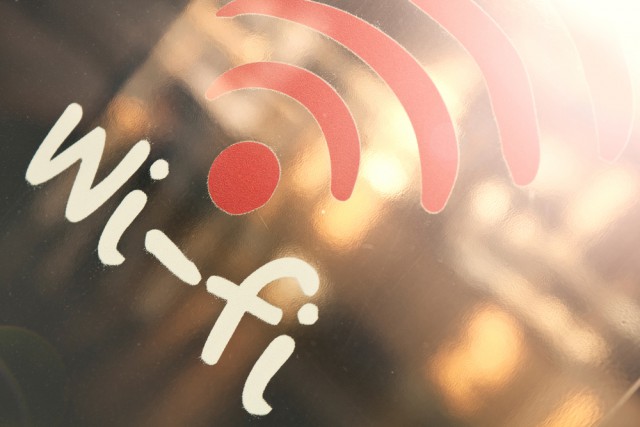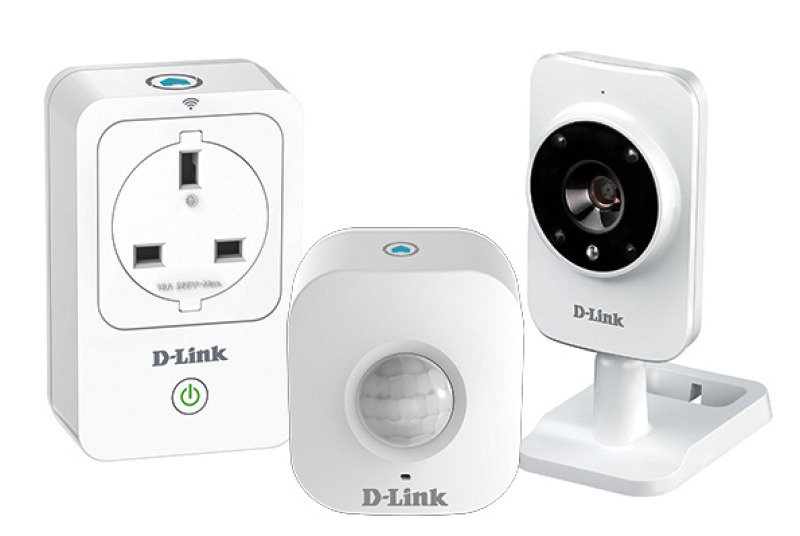
New solution allows secure networking via public Wi-Fi
We've come to expect public Wi-Fi pretty much everywhere we go these days. But using these networks can leave you open to a whole range of security risks.
There's now a way to use public networks safely as network specialist Xirrus is launching Xirrus EasyPass Personal Wi-Fi. This is a key feature now available in all Xirrus cloud managed networks that safeguards users and their data when accessing public Wi-Fi, guest networks and hotspot environments.

Machine learning helps build better applications
New toolkits and training for developers allowing them to create intelligent applications have been launched by machine learning company Dato.
Developers can use Dato Toolkits to build software that uses machine learning technology, combining historical data and real time user interaction to make predictions and decisions to deliver rich and adaptive experiences to their users.

Your mother should know (how you use your computer at college)
A new report by internet security specialist Webroot on the eve of National Cyber Security Awareness Month (NCSAM) asked over 500 mothers with kids leaving for college this year about the security of their offspring's computers.
Among the findings are that a worrying 24.45 percent of moms report that their child does not have a security solution installed on their laptop or computer. The reasons for this are interesting, with 37.4 percent not having thought about it, 34.15 percent because they said the machine came with security already, and 17.07 percent who don't believe security is necessary.

Why IT staff are unhappy at work
If you work in IT it's generally the case that you're quite well paid and enjoy good career prospects. Yet according to a new survey you're probably also unhappy.
Workforce engagement specialist TinyPulse surveyed over 5,000 tech and IT workers and found that they are very, very unhappy. The top drivers of unhappiness were poor coworker relationships, little room for growth with their employer, and not enough praise for their work.

Best video sharing websites
When you are bored, or when you want to find clear instructions on how to do something or to get to know the latest news, the best way to do it is to watch corresponding videos. Indeed, all the information is consumed much better if it’s a video.
The best resource of videos is of course the Internet, but which websites are the best resources to enjoy various video materials? Today we have listed and reviewed the best video sharing websites for various purposes.

Why companies need to embrace mobile marketing
With mobile overtaking desktop as the main way of accessing the internet, brands have new opportunities to reach their customers on their preferred platform.
Mobile technology company Zumobi has produced an infographic looking at the opportunities for brands to harness the power of mobile content marketing strategies.

The best methods for transferring data between computers to ensure an efficient migration
There are currently more than 600 million personal computers in use that are at least four years old and ready to be replaced, according to research from Intel. That is a huge number of people who are going to buy new computers in the near future, and they will all need to migrate their applications and data to their new PC. However, moving into a new PC can be a challenge. Most users have spent years shaping a comfortable PC environment -- its "personality". Getting a new PC similarly configured and setup, with all the applications and data, can be a daunting task -- one that is time-consuming and often difficult for non-technical consumers.
The good news is that migrating data and applications between computers doesn’t have to be an arduous, dreaded, fear-ridden process. A new computer typically means faster computing speed, more memory and enhanced new features. It also represents an opportunity to start fresh by organizing your computer’s content (i.e. archiving old files and cleaning up folder structures) before the transition. Transferring files and data between systems or via the same platform doesn’t have to be a complicated undertaking if you know the proper steps to take. Here are the three stages of an efficient and convenient migration.

iPad Pro isn't the laptop-killing magic bullet
With the hype surrounding the iPad Pro debut subsiding, now is a good time to take stock of what Apple really announced and also poke some holes in a few of the more hysterical predictions coming out of the financial industry.
First off, what the iPad isn’t: A laptop killer. Yes, Apple is providing a very Surface-esque keyboard accessory (though one that’s infinitely less adjustable). And yes, they’ve finally figured out how to do split-screen task switching (calling it “multitasking” is being too generous to iOS). But the net result is still just a bigger iPad which, in turn, is really just a blown up iPod Touch.

IT workers suffer the summertime blues
During the summer months, many organizations see a significant expansion in the number of remote workers, which can make the job of network managers or system admins more difficult.
Software company Ipswitch recently polled 239 IT professionals in the United States to identify the issues that most affect them over the summer.

Millennials just want to have human contact
Despite being thought of as the generation that organizes pretty much everything in their lives through social media, new research from call center specialist Mattersight reveals that when it comes to service issues millennials prefer to speak to a human being.
Only one percent of millennials want to use social media to contact a brand when they have a product question or problem. Of those surveyed, 76 percent say they prefer to call (56 percent) or email (25 percent) brands for customer service issues.

I hate autocorrect
I must apologize to Art Alexakis, lead singer for Everclear. In a personal post last night observing his role as a tattoo artist in movie "Wild", his name is misspelled. Funny thing, so to get it right, I copied and pasted from the web into the WordPress editor. Yet somehow when published, and I missed, his name appeared as Alexis. My thanks goes to Scott Bell, who pointed out the error in a Google+ comment.
It's strange how tech meant to be beneficial gets in the way. More mistakes appear in my stories because of autocorrect than I make myself. The pattern is consistent: I will write, nix autocorrect's changed misspelling, but later edit something else in the sentence. Word changes! As a long-time writer and editor, I revise constantly until publishing—and afterwards, too. The spelling errors I miss most often typically are the ones made for me during spot edits.

Smart Home HD Starter Kit: A simple way to a smart home [Review]
There are lots of ways to create a connected home. My colleague Alan Buckingham is using Amazon Echo as the base to control his home’s lighting and heating, with occasionally interesting results (Alexa sometimes leaves him sitting in the dark).
If you’re not sure where to start, and you don’t want to spend too much money getting up and running, then mydlink Home's Smart Home HD Starter Kit from Ebuyer is a simple and smart solution. For your money you get an HD night-vision camera, Smart Plug and Wi-Fi Motion Sensor.

84 percent of people support eliminating passwords
Spare a moment to consider the plight of the humble password. It has become an essential component of modern life, but it would be wrong to say we've grown to know and love it.
In fact a survey by mobile authentication specialist LaunchKey shows that 84 percent of respondents would like to do away with passwords altogether and 76 percent believe their information would be more secure with an alternative form of authentication.

Millennials lose trust in the digital economy
Although millennials are the first fully connected generation, having lived their whole lives in the Internet era, new research suggests that they're beginning to recognize that their identity and personal data may not be properly protected.
Digital identity specialist Intercede surveyed around 2,000 16-35 year-olds in the US and UK to get their views on current security measures. The results suggest what the company calls a 'millennial malaise' towards existing safeguards, in particular the use of easily-hackable but widely used password-based authentication methods.

Silver underpants protect your family jewels from Wi-Fi radiation
More and more of the devices we use these days rely on wireless signals for their connectivity. If you're male you quite likely carry your smartphone in your trouser pocket or use your laptop or tablet on your knee, which means these signals are being transmitted in close proximity to your gentleman's area.
Should you worry about this? A 2014 study by the University of Exeter suggests that just one hour's exposure to radiation from a mobile phone can reduce in vitro (outside the body) sperm motility to 49 percent and viability to 52 percent. In addition the World Health Organization has classified electromagnetic radiation in the same category of harmfulness to humans as petrol exhaust fumes.
